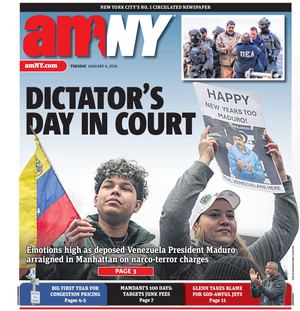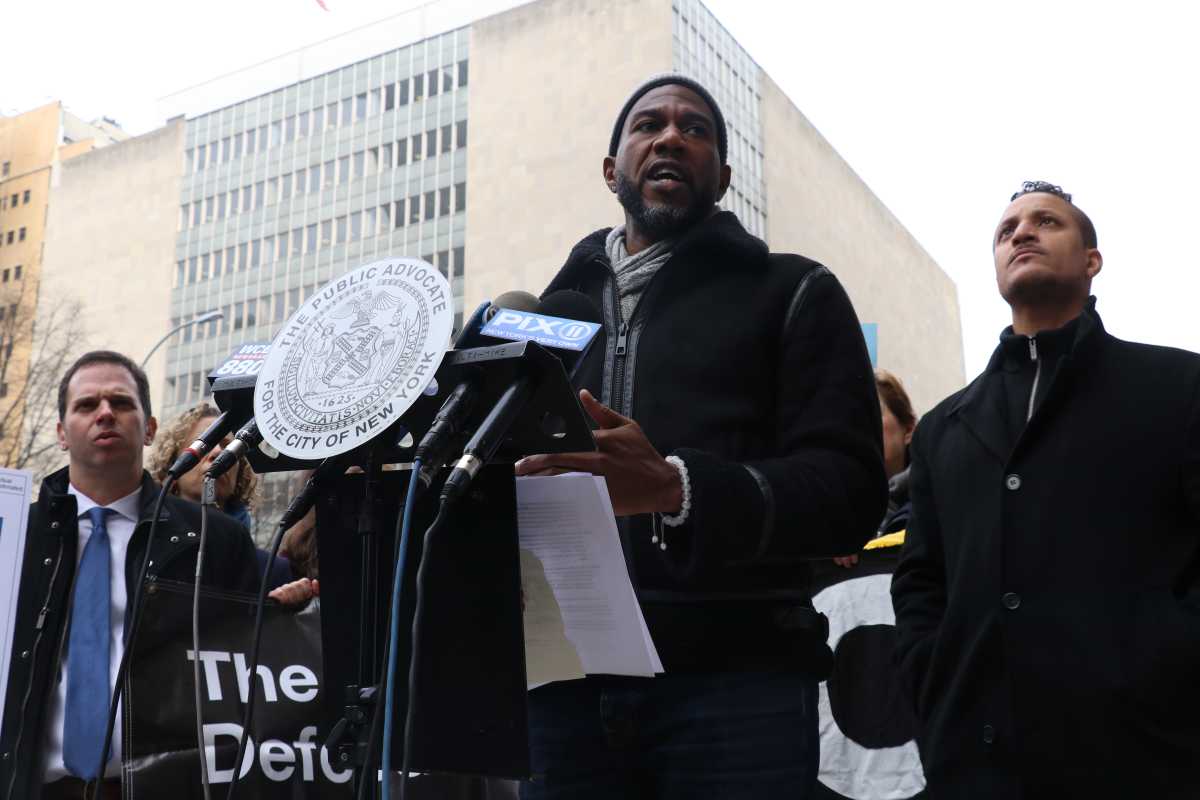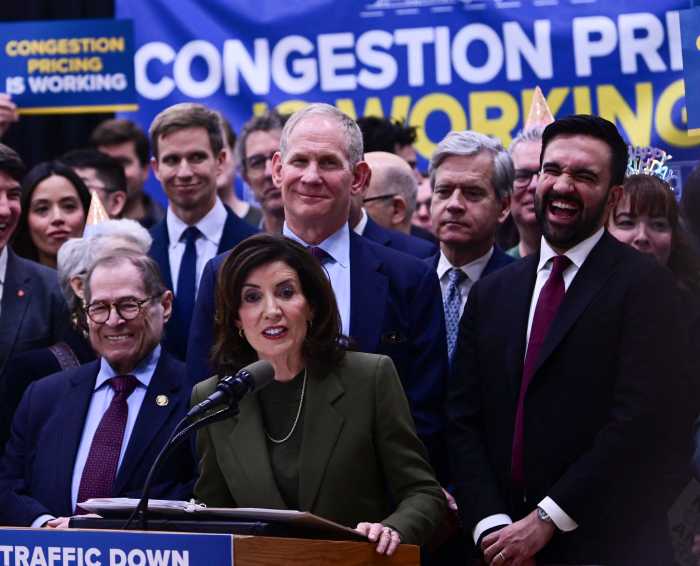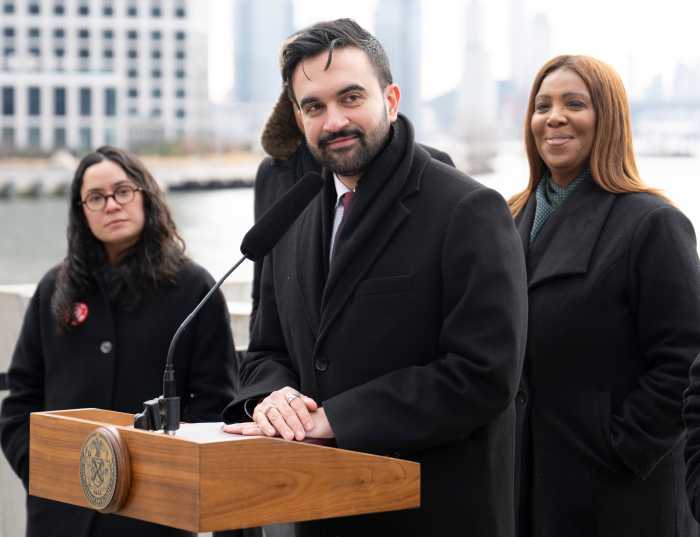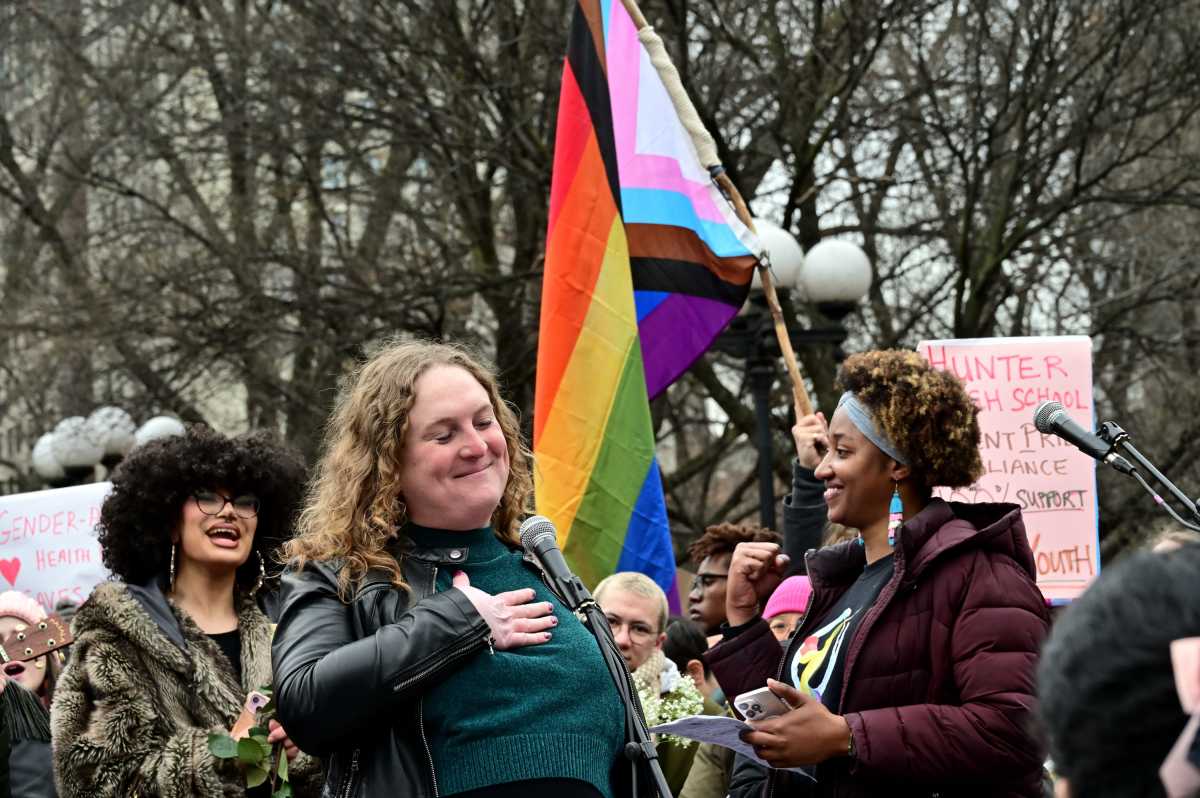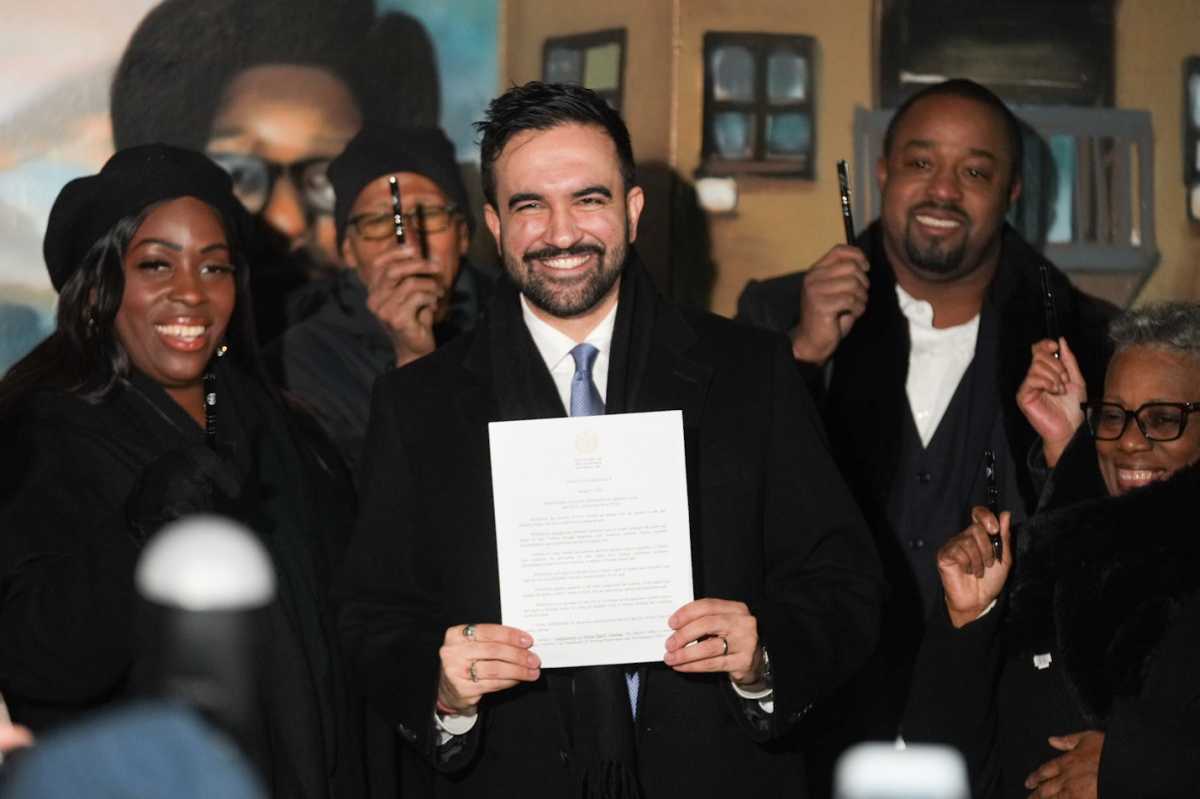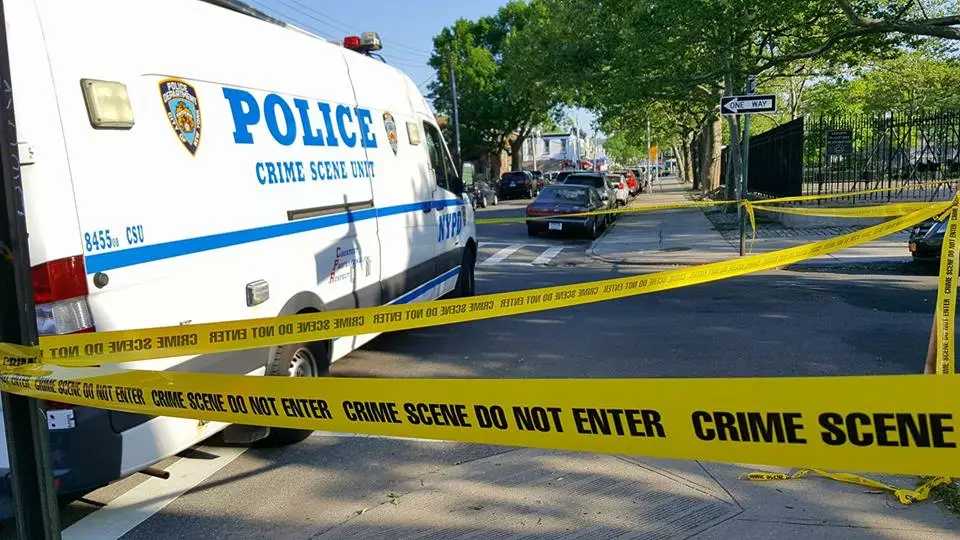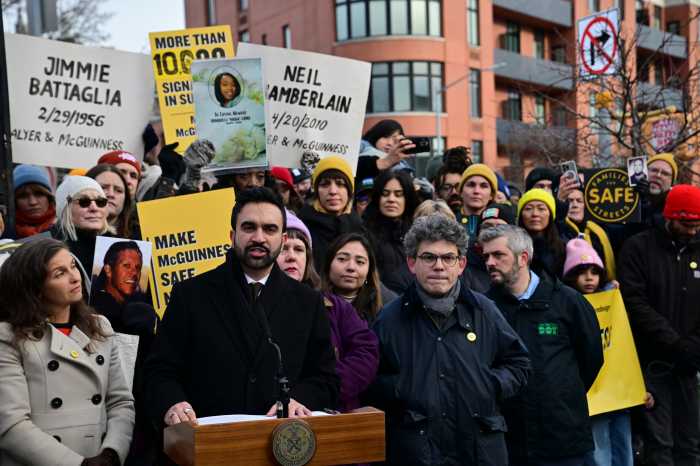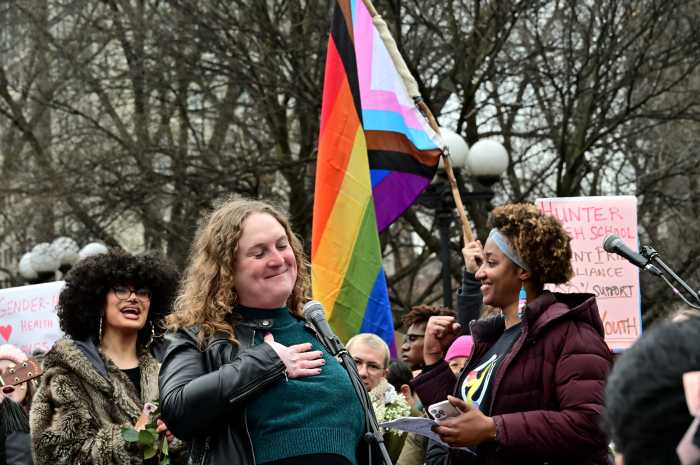As New York elected officials push back against bail reform, Public Advocate Jumaane Williams continues to defend the law enacted on Jan. 1.
Williams contrasted the bail situation for two high-profile criminal cases during a press conference outside a Manhattan courthouse on Tuesday as the key reason why bail reform is a necessity in New York State.
“The fact that just a block behind us, Harvey Weinstein arrived for his trial with his own power while…Kalief [Browder]couldn’t afford to go home,” said Williams.
Along with referencing the Weinstein sexual abuse trial, Williams mentioned Bronx native Kalief Browder, who was arrested for stealing a backpack and spent three years at Rikers Island jail complex awaiting trail unable to make bail. Browder killed himself two years after his release as the result of mental, physical and sexual abuse he sustained in jail.
Weinstein, a disgraced movie mogul, made his bail after being charged for sexual abuse.
Williams, along with bail reform advocates, aimed to dispel misinformation about the law spreading in the city.
The law, which officially went into effect on Jan. 1, eliminates pre-trial detention and bail for those charged with most misdemeanor and nonviolent felonies. Crimes excluded from the new bail reform law include sex crimes, witness tampering, incidents of terror, and violent felonies.
New York joined a slew of other states taking up similar legislation during last year’s budget season. Advocates say bail reform makes the criminal justice system more equitable for all. Before the law took effect, some low-level defendants were held in jails simply because they lacked the funds to post bail.
In light of a series of recent anti-Semitic incidents in the city, however, some have blamed the bail reform law for perpetuating revolving door justice. Some supporters of the reform, like Governor Andrew Cuomo and Mayor Bill de Blasio, are now wavering on their stance; Cuomo on Monday said that the bail reform law remains “a work in progress.”
Some judges, district attorneys and law enforcement officers fear that the law set dangerous criminals on the loose. Critics take issue with the fact that the law does not give judges discretion on whether someone poses a threat to public safety when consider to keep them in jail.
The public advocate, however, isn’t buying it.
“I want to caution everyone know who is trying to claw back these wins that there are many people apologizing for the crime bills … apologizing for the abuses of stop-and-frisk,” said Williams, referring to former mayor Michael Bloomberg’s public apology for the policing practice implemented under his administration. Stop-and-frisk resulted in thousands of people of color being wrongly profiled by police.
“We make these knee jerk reactions and rash decisions in response, often times pandering to the fears that people have,” Williams added. “What I’m asking people to do is to have the courage of leadership … Nobody wants to see anybody hurt.”
